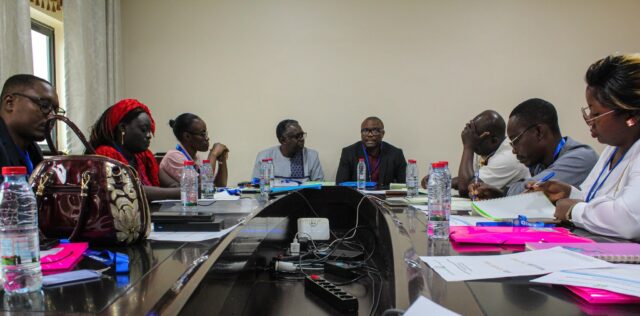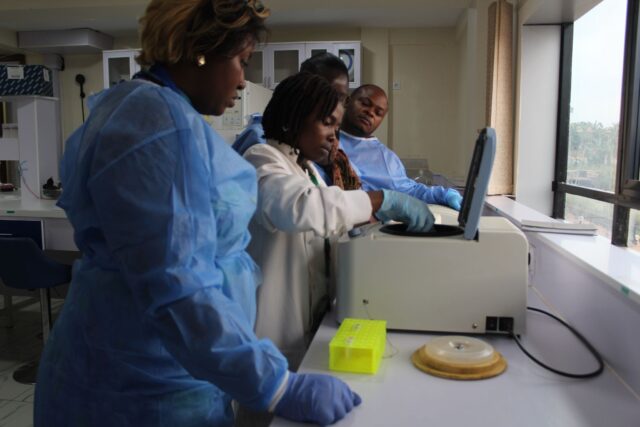The training on the “Surveillance of Anopheles stephensi at the health level district in Cameroon” took place from the 26th to 30th August 2024. At the end, seminarians were encouraged to continue supporting vector control efforts through the surveillance of invasive mosquito species in their respective regions.

Seminarists receiving courses
A total of twenty participants from different regions of Cameroon attended this workshop, including twelve regional staff and the facilitators. This training session was part of the Centers for Disease Control and prevention (CDC) project for tracking Anopheles stephensi Invasion in Central Africa using population genomics approach. Its general objective was to capacitate local health personnel for Anopheles stephensi surveillance at the health district level. The trainees were staff from health districts across the country, with expertise in sanitation. The 5-day agenda was divided into two phases. First, a theoretical phase focusing on general knowledge of epidemiology and malaria vectors, with particular attention to Anopheles stephensi ecology. Then followed a practical phase involving the field collection of Anopheles larvae in the preferred breeding sites of this species (Man-made breeding sites including used tires, discarded tanks…) in Yaoundé, and an introduction to the molecular technics for the identification of An. stephensi.

Participants in the laboratory
Another aim of this workshop was to enhance data collection and reporting practices, facilitating the analysis and dissemination of surveillance data on Anopheles stephensi. Furthermore, this experience will help strengthen the collaboration among health districts, and with relevant stakeholders thereby promoting a unified approach to Anopheles stephensi control. The panel of facilitators consisted of Prof Charles Wondji, CRID’s Executive Director; Dr Joel Ateba, permanent Secretary of the National Malaria Control Program (NMCP); Dr Basile Kamgang, head of entomological department at CRID, Drs Magellan Tchouakui, Armel Tedjou, and Lili Mbakop, researchers at CRID; Dr Antonio Nkondjio, researcher at OCEAC (Organization for the Coordination of the fight against Endemic diseases in Central Africa ), Dr Raymond Tabue, coordinator of the entomology service at NMCP (National Malaria Control Program); and Mr Bruno Essame, project manager at CRID. Upon conclusion of the workshop, seminarians were encouraged to continue the commitment to vector control by making themselves available whenever they are requested in their different regions of origin for the collection of entomological data. They are now able to effectively accompany researchers for the efficient surveillance of Anopheles. stephensi throughout the country.






